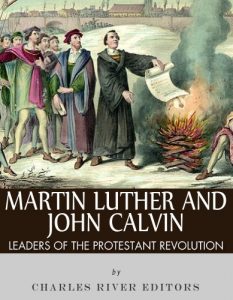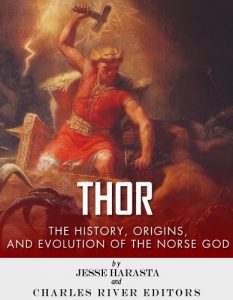*Includes pictures
*Includes Beckwourth's quotes about his life
*Includes online resources and a bibliography for further reading
*Includes a table of contents
"Jim Beckwourth, who knew, said that though the Indian could never become a white man, the white man lapsed easily into an Indian." - Bernard DeVoto, The Year of Decision: 1846
Explorers, soldiers, and settlers of African-American heritage comprise an unfamiliar story to most students of American history. However, in the push westward, they were present in sufficient numbers to exert great influence on the nation’s development. Among the earliest accounts is that of Isabel de Olvera, who settled in New Mexico around the year of 1600, and it is estimated that by 1750, 25% of Albuquerque’s population shared discernible African ancestry. York, the well-known servant of Lewis and Clark, accompanied the legendary expedition under the auspices of the Jefferson administration, and Edward Rose traveled up the Missouri River in the same era. Within just a few years, Pio Pico became the governor of California, and George Bush became one of the first African-Americans to travel the Oregon Trail, opening that route to a flood of settlers over a 10-year period.
In parallel with these individuals came a number of African-American frontiersmen who participated in the exploration of the Western terrain, said to have numbered in the dozens. Needless to say, such a career was an unusual destiny for those who “emerged from the system of slavery.” Emancipation for an American slave generally involved a dangerous and illegal trek on foot toward the north, or through the Underground Railroad network operating between states east of the Mississippi.
Given the illiteracy rates of the day, few tangible accounts of such journeys have survived, but one glaring exception is that of James Pierson Beckwourth, the only known African American mountain man to leave behind a detailed, if somewhat sensationalistic, account of his travels. In a journey spanning over half a century, Beckwourth tried his hand at virtually every line of work related to Western life. He served as a soldier, explored a vast range of territory as a mountain man, and worked as a scout and guide. In later years, he lived as an entrepreneurial merchant, professional card player, and as a skilled horse thief for both Indian tribes and the U.S. Army.
Perhaps most unique of all was Beckwourth’s relations with Native American tribes. Adapting himself to the culture of several tribes of the Plains and the Southwest, and employing a particular charm and prowess in battle, he was adopted by the Crow nation. In their society, Beckwourth rose to the level of War Chief, and he lived with the tribe for several years. Hailing from a largely anonymous slave culture, Beckwourth was in a perpetual search for personal fame throughout his life, and to some degree, he found it, thanks to the “autobiography” personally dictated to author T.D. Bonner, who recast the frontiersman’s lasting legacy as that of a “black Daniel Boone.” His resulting reputation thrived alongside famed Western characters such as Kit Carson, Jedediah Smith, Pierre Vasquez, and Jim Bridger.
Jim Beckwourth: The Life and Legacy of the Former Slave Who Became One of America’s Most Famous Mountain Men examines the legendary career of one of the most unique figures in the history of the American West. Along with pictures of important people, places, and events, you will learn about Jim Beckwourth like never before.
*Includes Beckwourth's quotes about his life
*Includes online resources and a bibliography for further reading
*Includes a table of contents
"Jim Beckwourth, who knew, said that though the Indian could never become a white man, the white man lapsed easily into an Indian." - Bernard DeVoto, The Year of Decision: 1846
Explorers, soldiers, and settlers of African-American heritage comprise an unfamiliar story to most students of American history. However, in the push westward, they were present in sufficient numbers to exert great influence on the nation’s development. Among the earliest accounts is that of Isabel de Olvera, who settled in New Mexico around the year of 1600, and it is estimated that by 1750, 25% of Albuquerque’s population shared discernible African ancestry. York, the well-known servant of Lewis and Clark, accompanied the legendary expedition under the auspices of the Jefferson administration, and Edward Rose traveled up the Missouri River in the same era. Within just a few years, Pio Pico became the governor of California, and George Bush became one of the first African-Americans to travel the Oregon Trail, opening that route to a flood of settlers over a 10-year period.
In parallel with these individuals came a number of African-American frontiersmen who participated in the exploration of the Western terrain, said to have numbered in the dozens. Needless to say, such a career was an unusual destiny for those who “emerged from the system of slavery.” Emancipation for an American slave generally involved a dangerous and illegal trek on foot toward the north, or through the Underground Railroad network operating between states east of the Mississippi.
Given the illiteracy rates of the day, few tangible accounts of such journeys have survived, but one glaring exception is that of James Pierson Beckwourth, the only known African American mountain man to leave behind a detailed, if somewhat sensationalistic, account of his travels. In a journey spanning over half a century, Beckwourth tried his hand at virtually every line of work related to Western life. He served as a soldier, explored a vast range of territory as a mountain man, and worked as a scout and guide. In later years, he lived as an entrepreneurial merchant, professional card player, and as a skilled horse thief for both Indian tribes and the U.S. Army.
Perhaps most unique of all was Beckwourth’s relations with Native American tribes. Adapting himself to the culture of several tribes of the Plains and the Southwest, and employing a particular charm and prowess in battle, he was adopted by the Crow nation. In their society, Beckwourth rose to the level of War Chief, and he lived with the tribe for several years. Hailing from a largely anonymous slave culture, Beckwourth was in a perpetual search for personal fame throughout his life, and to some degree, he found it, thanks to the “autobiography” personally dictated to author T.D. Bonner, who recast the frontiersman’s lasting legacy as that of a “black Daniel Boone.” His resulting reputation thrived alongside famed Western characters such as Kit Carson, Jedediah Smith, Pierre Vasquez, and Jim Bridger.
Jim Beckwourth: The Life and Legacy of the Former Slave Who Became One of America’s Most Famous Mountain Men examines the legendary career of one of the most unique figures in the history of the American West. Along with pictures of important people, places, and events, you will learn about Jim Beckwourth like never before.












